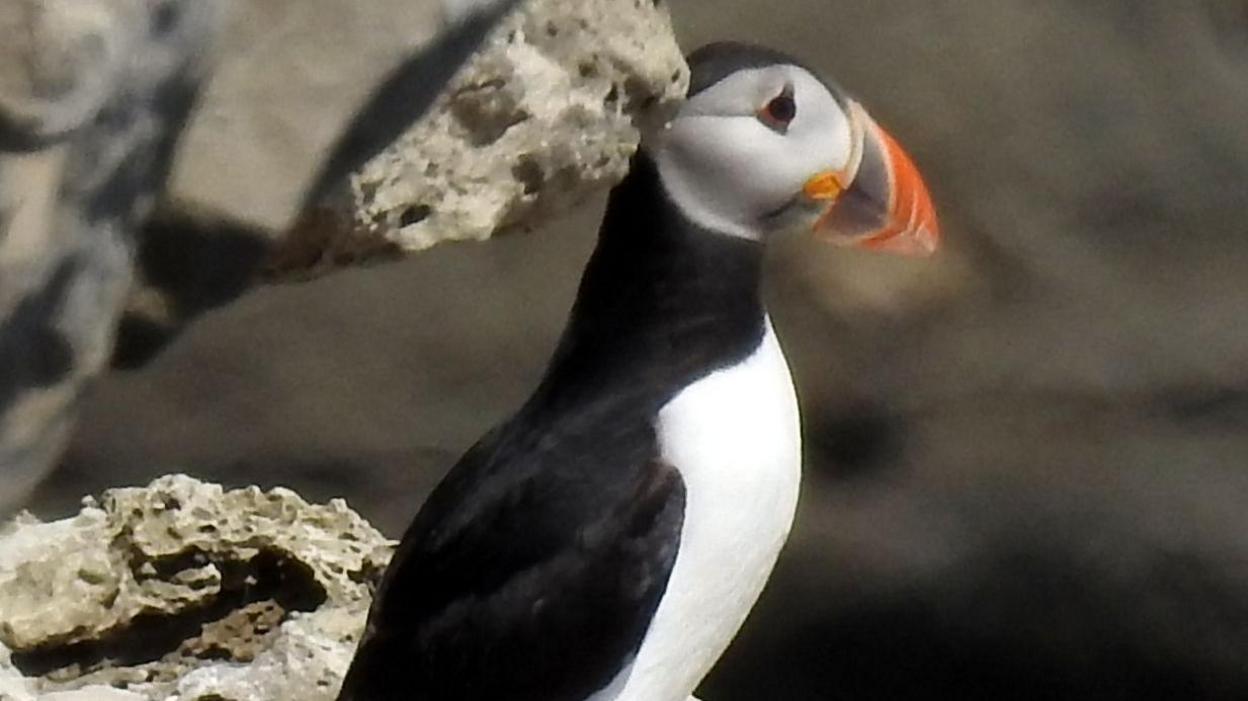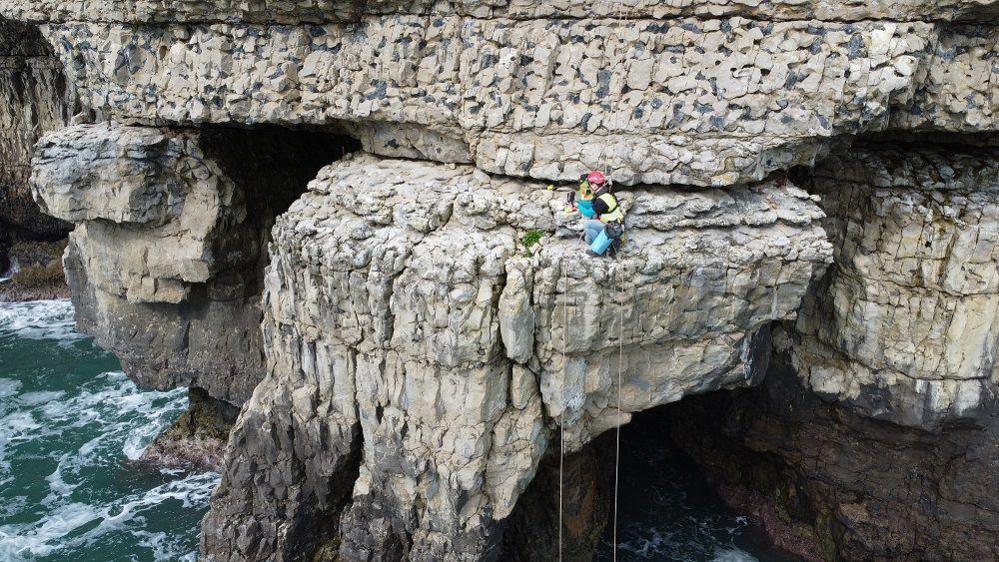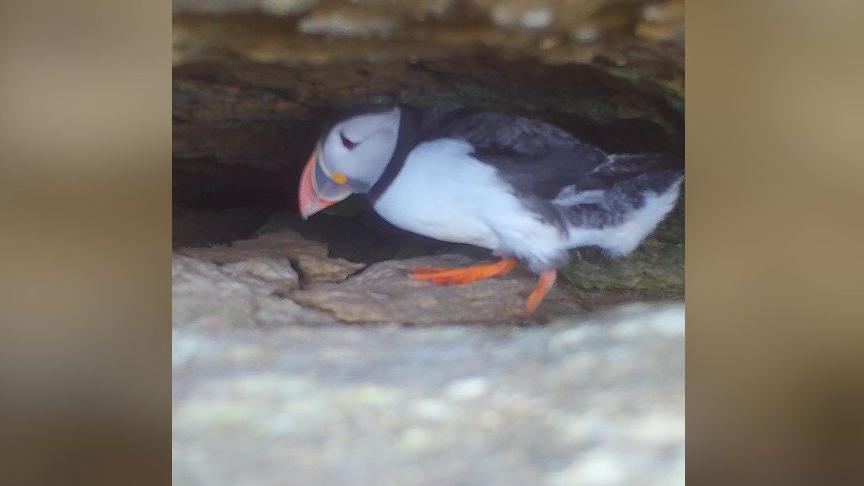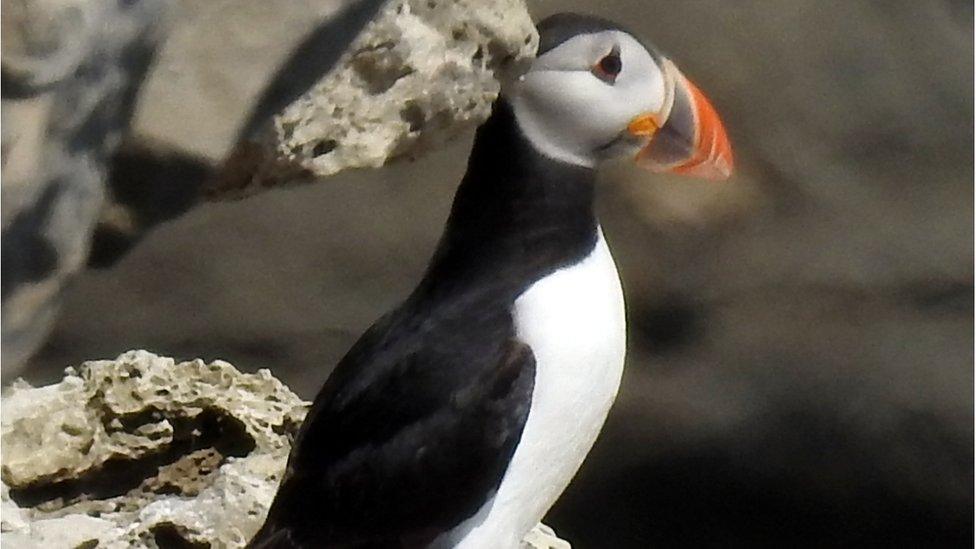Cliff cameras fail to solve missing puffins mystery

Puffins at Dancing Ledge may be facing extinction
- Published
Wildlife cameras have failed to explain why the last known colony of puffins on the south coast of England has failed to raise young.
In 2023, naturalists noticed that the seabirds near Swanage, Dorset, had stopped bringing fish to their nests on the cliffs.
They speculated that rats or crows had eaten the chicks.
However, motion-sensor cameras installed at the site in 2024 have recorded no predators and have not provided any other explanation, the National Trust said.

The cameras were installed on cliffs near Swanage
More than 70,000 images were viewed from the cameras at Dancing Ledge.
In 2024, the puffins were seen to build nests but did not deliver food, probably because their eggs did not hatch, according to the National Trust which manages the site.
Marine ornithologist Dr Richard Caldow said: "It's disappointing that the cameras didn't reveal exactly what the problem is.
"This is important because it's the last known regular nesting site for puffins on the mainland of southern England.
"Sadly... without intervention, they are probably facing extinction here."

The cameras were installed in cliff fissures where the puffins nest
In recent years, only three nesting pairs of puffins have been seen at the site. However, a survey in 1958 recorded about 85 birds.
This year, researchers are asking for local boat operators to help pinpoint exactly where the puffins are nesting.
The National Trust and its partners plan to reinstate the cameras in 2026, with improved equipment and locations.
Get in touch
Do you have a story BBC Dorset should cover?
You can follow BBC Dorset on Facebook, external, X (Twitter), external, or Instagram, external.
Related topics
- Published5 April 2024
